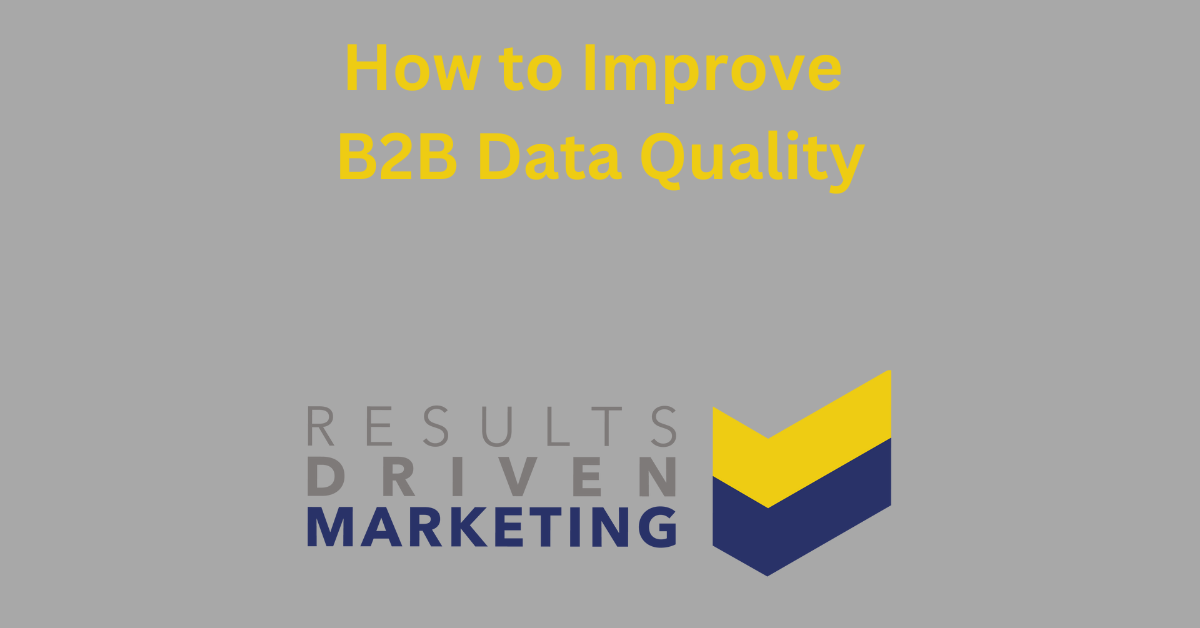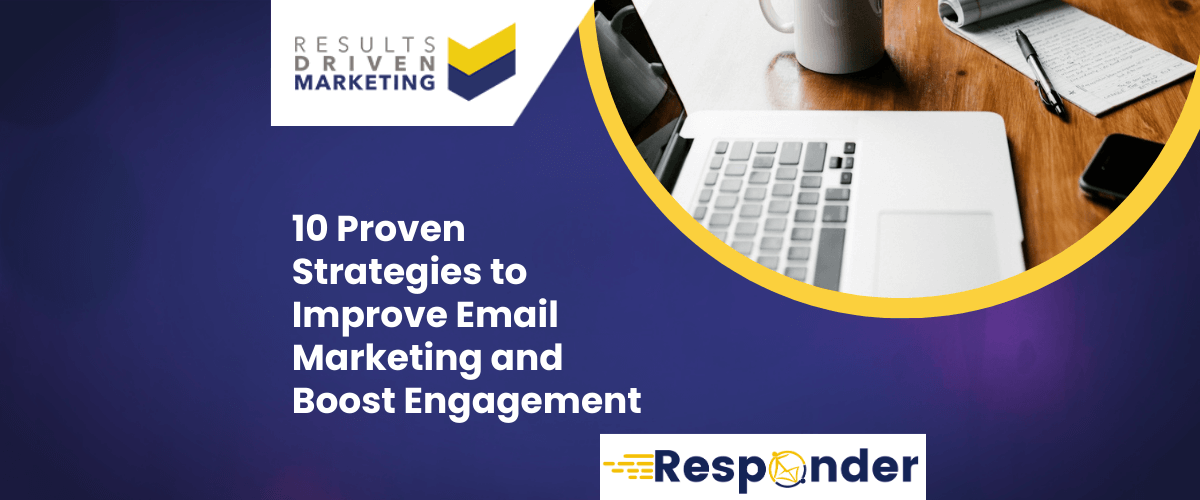
How to Improve B2B Data Quality
Today, in the constantly evolving business landscape, data is the lifeblood that ensures the health and growth of any organisation which means that learning how to improve b2b data quality is a must.
For B2B businesses, quality data plays a crucial role in strategic decision-making, sales forecasting, and marketing efforts. However, maintaining this data quality can often be a challenge, given the dynamic nature of businesses and data itself.
If you’ve been wondering how to improve data quality, then you’re in the right place. This article aims to provide comprehensive insights and solutions to elevate the quality of your B2B data.
What Does B2B Data Quality Mean?
Before we dive into how to improve B2B data quality, it’s essential to understand what B2B data quality means. In essence, B2B data quality refers to the degree to which your business data is accurate, comprehensive, consistent, and reliable. High-quality B2B data is up-to-date, free of errors, and is in a format that’s easily accessible and understandable for all relevant parties in your organisation.
Understanding the Importance of B2B Data Quality
In today’s fast-paced business world, the significance of B2B data quality cannot be overstated. It’s the backbone of successful business operations, driving informed decisions and ensuring that organisations remain competitive. But what exactly does “B2B data quality” mean, and why is it so crucial?
The Importance of High-Quality B2B Data for Organisations
For organisations, especially those in the B2B sector, data is more than just numbers on a spreadsheet. It’s the lifeblood that fuels growth, innovation, and customer satisfaction. High-quality B2B data:
- Facilitates informed decision-making: With accurate and up-to-date data, businesses can make decisions that are in line with market trends and customer preferences.
- Enhances operational efficiency: Quality data reduces the chances of errors, ensuring smooth business operations.
- Boosts ROI: Investing in B2B data quality ensures that marketing and sales efforts are directed towards the right audience, leading to better conversion rates.
Effective Business Growth Strategies with Quality Data
When it comes to crafting effective business growth strategies, the quality of your B2B data plays a pivotal role. Here’s why:
- Targeted Marketing Campaigns: Quality data allows businesses to segment their audience, ensuring that marketing campaigns resonate with the intended audience.
- Improved Customer Relationships: With accurate data, businesses can better understand their customers’ needs, leading to improved customer satisfaction and loyalty.
- Risk Management: Quality data provides insights into market trends, helping businesses anticipate challenges and devise strategies to mitigate risks.
Role of Data Quality in B2B Organisations
Diving deeper into the realm of B2B, it’s clear as day that data quality isn’t just a fancy term. It’s the very essence that can make or break an organisation’s success. Now, let’s delve into how b2b data quality plays its part in different facets of an organization, shall we?
For Sales Teams
Ah, the dynamic world of sales! Here, every piece of information, every tiny detail, can be the difference between sealing a deal and missing out on a golden opportunity.
Designing Personalised Sales Strategies
Imagine this: You’re reaching out to a potential client, and you have all the information you need about them. Not just their name or company, but their preferences, past interactions, and even challenges they might be facing. This isn’t just data; this is high-quality b2b data. And with this:
- You can craft messages that resonate, not just communicate.
- Propose solutions that are tailored, not generic.
- Build relationships that last, not just transactions.
In essence, b2b data quality empowers sales teams to design strategies that are not just effective but also personalized. It’s like having a roadmap that’s been designed just for you.
For Marketing Teams
On the other side of the spectrum, we have our marketing maestros. For them, data isn’t just numbers or stats; it’s the voice of their audience.
Creating an Ideal Customer Profile (ICP)
The beauty of high-quality b2b data lies in its ability to paint a picture. And for marketing teams, this picture is of their Ideal Customer. With top-notch b2b data quality:
- You can identify patterns and trends, understanding what your audience truly wants.
- Segment your audience, ensuring that your messages reach those who’ll value them the most.
- Optimise your campaigns, ensuring that every penny spent is worth it.
In a nutshell, b2b data quality allows marketing teams to create an ICP that’s not based on assumptions but on concrete data. It’s like having a compass that always points to success.
What are the Attributes of High-Quality B2B Data?
To truly harness the power of B2B data, it’s essential to understand the attributes that define its quality.
Data Accuracy
Reflecting Reality in Business Data
Accurate data is a true reflection of reality. It ensures that the information you rely on to make business decisions is correct, up-to-date, and relevant. Inaccurate data can lead to misguided strategies and missed opportunities.
Data Recency
Staying Updated with Market Trends
Data recency refers to how current your data is. In the ever-evolving B2B landscape, outdated data can be detrimental. Staying updated with market trends ensures that your strategies are in line with the current business environment.
Data Completeness
Ensuring No Missing Values
Complete data is devoid of any gaps or missing values. Incomplete data can lead to skewed insights and can hamper the decision-making process.
Data Compliance
Avoiding Legal Troubles and Ensuring Reputation
Compliance is crucial, especially with the myriad of data protection regulations in place today. Ensuring that your B2B data adheres to these regulations not only avoids legal troubles but also boosts your organization’s reputation.
Data Comprehensiveness
Providing Vital Insights for Sales and Marketing
Comprehensive data provides a holistic view of the market, customers, and competitors. It encompasses all the necessary details, ensuring that sales and marketing teams have all the information they need to craft effective strategies.
Benefits of High-Quality B2B Data Management for Organisations
Alright, let’s get into the nitty-gritty of it all. We’ve chatted about the role of b2b data quality in sales and marketing, but let’s zoom out a bit. What are the overarching benefits for organisations when they prioritise high-quality B2B data management? Let’s dive in.
In-depth Analysis of Business Data
With top-tier b2b data quality, organisations can truly get under the hood of their operations. It’s like having a magnifying glass that:
- Reveals insights that might have been overlooked.
- Helps in identifying potential growth areas.
- Sheds light on areas that might need a bit of tweaking.
In essence, it’s about making informed decisions, not just educated guesses, especially when you buy b2b data.
Enhanced Customer Loyalty
Ah, the golden goose for any business – loyal customers. And guess what? Stellar b2b data quality can be your ticket to achieving just that. By understanding your customers better:
- You can cater to their specific needs.
- Address concerns before they even arise.
- And, well, just make them feel valued and heard.
Optimisation of Efforts and Resources
Time is money, and in the business world, this couldn’t be truer. With impeccable b2b data quality:
- Teams can focus on what truly matters, eliminating guesswork.
- Resources can be allocated efficiently, ensuring maximum ROI.
- Efforts can be streamlined, leading to increased productivity.
Accelerate MQL to SQL Conversion
For those in the know, moving from Marketing Qualified Leads (MQL) to Sales Qualified Leads (SQL) can be a game-changer. And with top-notch b2b data quality:
- Sales and marketing teams can be in sync.
- Potential leads can be identified and nurtured effectively.
- The conversion process can be smoother and faster.
Boosting Business Revenue
At the end of the day, it’s all about the bottom line, isn’t it? And believe it or not, b2b data quality can play a pivotal role in:
- Identifying new revenue streams.
- Optimising current strategies for better results.
- Ensuring sustained growth and profitability.
Improved Business Frameworks and Processes
Think of b2b data quality as the oil that keeps the organisational machinery running smoothly. It:
- Helps in refining business processes.
- Ensures that frameworks are effective and efficient.
- Leads to a more streamlined and agile organisation.
What are the advantages of b2b data quality?
Now, if we were to distill all of this down, what are the core advantages of b2b data quality? Well:
- It provides a competitive edge in the market.
- Ensures that every decision is data-driven.
- Leads to increased customer satisfaction and loyalty.
- Boosts overall organisational efficiency and profitability.
What are the key considerations when thinking about b2b data quality?
When pondering over data quality, it’s essential to:
- Understand the source of your data.
- Regularly update and cleanse the data.
- Ensure compliance with data protection regulations.
- Prioritise data security and privacy.
- And most importantly, ensure that the entire organization understands the significance of b2b data quality.
How to Improve B2B Data Quality: Practical Strategies
Implement Data Standards and Guidelines
The first step to improve data quality is to establish clear standards and guidelines for data collection, entry, and maintenance. These guidelines will ensure that everyone within the organisation follows a consistent process, reducing the chances of errors and inconsistencies.
Utilise Data Quality Tools
There are numerous tools available that can help you maintain and improve your data quality. These tools can validate, cleanse, de-duplicate, and standardise your data, ensuring it meets the quality standards you’ve set.
Regular Data Auditing
Regularly auditing your data helps in identifying and rectifying any issues early on. This proactive approach to managing data quality can significantly enhance the accuracy and reliability of your B2B data.
Encourage a Data-Driven Culture
Creating a data-driven culture within your organisation is crucial. When everyone understands the importance of data quality and their role in maintaining it, you’ll find it much easier to improve your data quality.
Data Enrichment
Data enrichment is the process of enhancing your existing data with additional, relevant information. This not only makes your data more valuable but also helps to verify its accuracy.
Automate Data Collection
Automation can help eliminate the chance of human error, which is often a significant factor in poor data quality. Automated data collection tools can help you gather data consistently and accurately.
Partner with Reliable Data Providers
If you source data externally, it’s crucial to ensure you’re working with reliable providers. They should have robust data quality processes in place and be able to provide data that meets your quality standards.
Keeping Up with the Changing B2B Data Landscape
Improving data quality is not a one-time activity but an ongoing process. With the ever-changing business landscape, your B2B data will continue to evolve. Therefore, it’s crucial to regularly reassess and refine your data quality strategies.
By continuously improving your data quality processes, you’ll ensure your B2B data remains accurate, consistent, and reliable, enabling your business to operate efficiently and make strategic decisions effectively.
Leverage Machine Learning and AI
Emerging technologies such as machine learning and artificial intelligence can play a substantial role in your quest for improved data quality. These technologies can help automate data cleansing processes and detect anomalies or errors that might otherwise go unnoticed. In addition, predictive analytics can also offer insights into future trends, allowing you to prepare your data and strategy accordingly.
Foster Cross-Departmental Collaboration
While the responsibility of improving data quality might primarily lie with your data management or IT team, it’s essential to foster cross-departmental collaboration. Encourage different teams to communicate their data needs and challenges, promoting a cohesive approach towards data management. This not only improves data quality but also fosters a better understanding and appreciation of the data within the organisation.
Ongoing Data Education
Ongoing data education is a critical part of improving data quality. Make sure your employees understand the importance of data quality, how they can contribute, and the impact of their actions on the overall data quality. Regular training sessions, workshops, or webinars can help keep everyone updated on the best practices and the latest tools for data quality management.
FAQs
Let’s dive into some of the most common queries about data quality, shall we?
Why is Data Quality important?
Great question to kick things off! Data quality, especially in the b2b realm, is like the foundation of a building. If it’s shaky, everything built on top of it is at risk. With top-notch data quality:
- Decisions are more informed and accurate.
- Operations run smoother.
- Customer interactions are more meaningful.
- And, in essence, the entire business ecosystem thrives.
What is GIGO and its relevance today?
GIGO stands for “Garbage In, Garbage Out.” It’s a principle that emphasises the importance of input quality. In today’s data-driven world, if the input (data) is poor, the output (decisions, strategies) will be flawed. So, in the context of data quality, GIGO underscores the need for impeccable data at the input stage to ensure stellar results at the output stage.
How does poor data quality impact brands?
Oh, where to begin? Poor quality can:
- Lead to misguided marketing campaigns.
- Result in lost sales opportunities.
- Damage brand reputation.
- And, in the long run, hamper growth and profitability.
How urgent is the problem of data quality?
Let’s put it this way: It’s as urgent as ensuring that the ship you’re sailing on doesn’t have any leaks. In the digital age, with businesses relying heavily on data, ensuring quality is not just important; it’s imperative.
What is the impact of dirty data on sales efficiency?
Dirty data can be a real dampener for sales teams. It can:
- Lead to wasted efforts on leads that aren’t relevant.
- Result in missed opportunities.
- And, overall, reduce the efficiency and effectiveness of sales strategies.
How does bad data affect customer experience?
Bad data can lead to miscommunication, unmet expectations, and, in essence, a customer experience that’s less than stellar. It’s like trying to read a map with missing roads; you’re bound to get lost.
How can one set up data quality standards?
Setting up data quality standards involves:
- Identifying key data points that are crucial for operations.
- Regularly updating and cleansing data.
- Training teams on the importance of data quality.
- And, using tools and software to monitor and maintain data quality.
Why is organising data in one place crucial?
Think of it as having all your tools in one toolbox. When data is organized in one place:
- Accessing it becomes easier.
- Analysis is more streamlined.
- Collaboration between teams is smoother.
- And, overall, operations are more efficient.
How does outsourcing data solutions help?
Outsourcing b2b data solutions can be a game-changer. It:
- Provides access to expertise and tools that might not be available in-house.
- Ensures that data quality is maintained by experts.
- Frees up internal resources to focus on core operations.
- And, in the long run, can be cost-effective.





